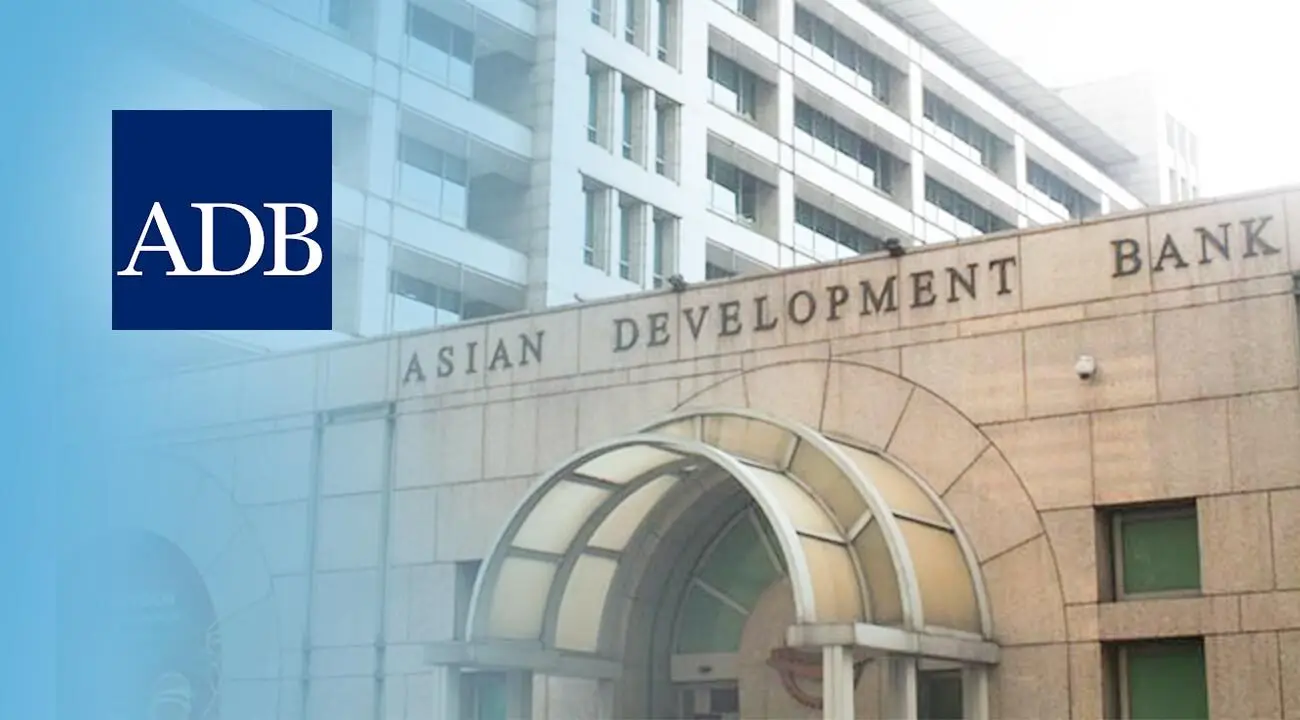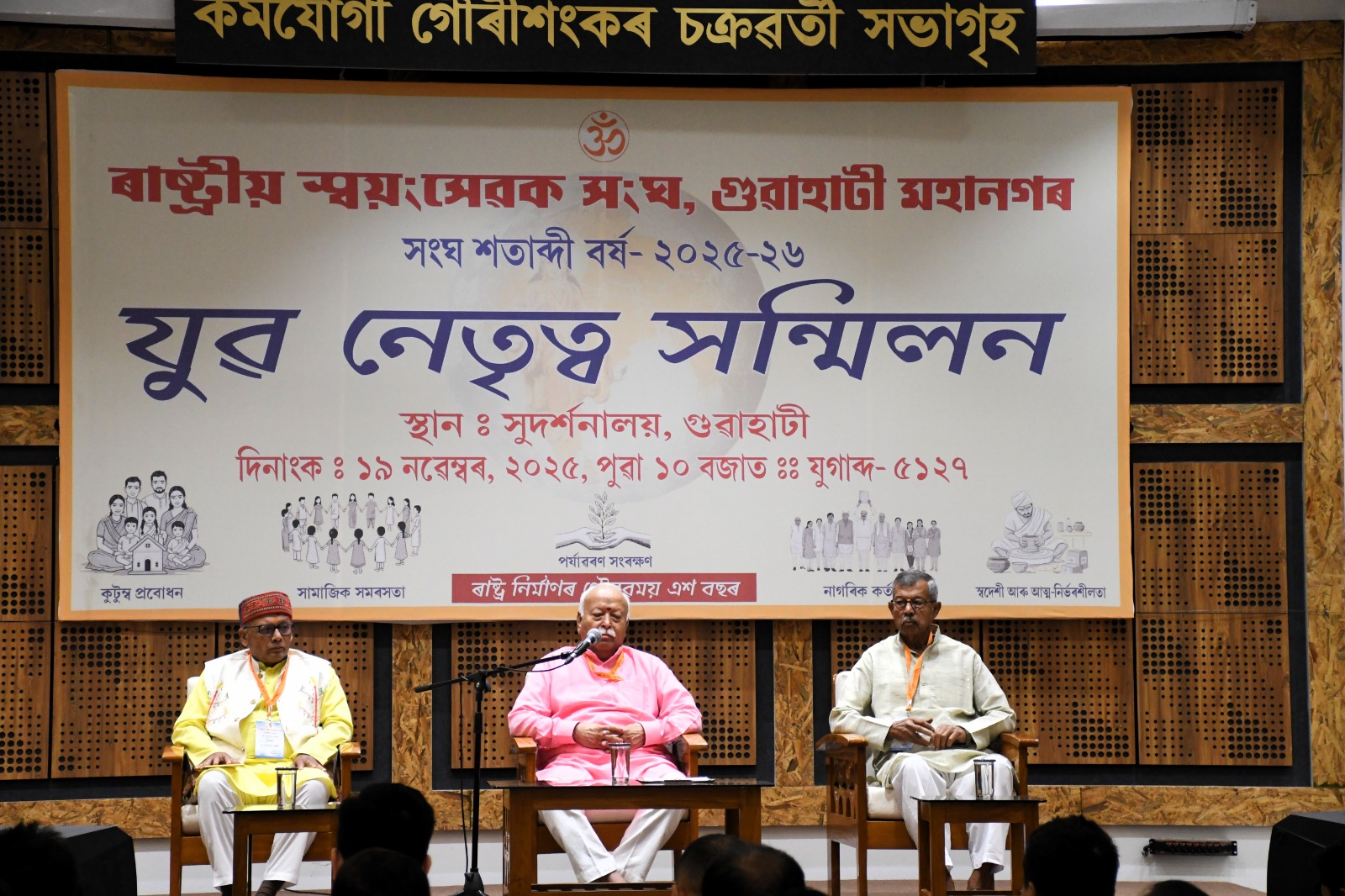Asia
Tanoto Foundation Presents Community-Led Early Childhood Parenting Models

MANILA – At the recent Asia-Pacific Regional Network for Early Childhood (ARNEC) Regional Conference 2025, Tanoto Foundation, a nonprofit organisation supporting change in education and healthcare, shared its early childhood parenting models from Indonesia and China.
These community-based programmes, Rumah Anak SIGAP from Indonesia and the HOPE (Harnessing Opportunity through Parenting and Education) programme from China, highlighted clear methods for helping young children thrive in rural and low-resource settings.
Both projects focus on children aged 0 to 3, a stage marked by significant brain growth. During these years, a young child’s brain can reach 80 per cent of its adult size. Research from the Centre on the Developing Child at Harvard University reports that brain cell development can reach 90 per cent in this stage, building the foundation for how children think, move, communicate, and respond to the world.
This period often brings extra challenges in parts of Asia. Research in 2023 by the Australian Council for Educational Research (ACER) found that 57 per cent of children aged 0 to 3 in parts of Indonesia may not reach their full potential.
It also showed that 26 per cent of these children live with poor caregiving at home. In China, there are similar concerns. A 2019 article in the Journal of Comparative Economics noted that over 80 per cent of young children in rural areas missed at least one key developmental milestone.
Impact in Indonesia: The Rumah Anak SIGAP Programme
The Rumah Anak SIGAP programme in Indonesia has shown strong results. An evaluation found that children in rural areas with early developmental delays saw their scores rise by an average of 1.06 points after joining the programme, compared to a 0.53-point rise among children in cities. By 2024, Rumah Anak SIGAP had reached over 3,000 children and parents through 29 centres in Banten, Central Java, East Kalimantan, Jakarta, and Riau.
Empowering local volunteers is at the heart of this programme. These community members play a key role in making sure the work is relevant and lasting. Ancilla Irwan, Education Development Lead, shared that this partnership with local people and government turns the programme into a strong part of community support for families. The value of this approach was shown by the Mayor of Semarang, Agustina Wilujeng Pramestuti, who spoke at the conference about bringing a Rumah Anak SIGAP centre together with a unit for preventing stunting in her city.
Radi Negara, the Impact Evaluation Lead at Tanoto Foundation, reported, “Of 64 parents interviewed, 59 shared positive changes. They mentioned better breastfeeding, improved nutrition, and stronger connections with their children. The biggest progress often happens at home, where parents start engaging with their children more often and with greater care.”
Scaling Up in China: The HOPE Programme
The HOPE programme in China has grown its community-based model to close gaps in child development. So far, 330 facilitators have been trained and 138 centres opened in Beijing, Guizhou, Jiangsu, Jiangxi, and Shandong. The programme now reaches more than 16,000 children under 3 and their families in rural areas.
Wu Wei, Country Head of Tanoto Foundation China, points out that spending on Early Childhood Development (ECD) helps reduce inequality, stops poverty from passing between generations, and builds the skills China needs for the future.
As a core member of ARNEC, Tanoto Foundation continues to support the network’s mission to improve ECD by building strong partnerships, sharing knowledge, and standing up for children’s rights. During the conference’s closing, Eddy Henry, Head of Policy and Advocacy at Tanoto Foundation, summed up this shared goal:
“This conference shows how working together can spread knowledge, help more voices be heard, and move forward the ECD agenda in the Asia-Pacific region. I hope each group here will take these lessons home, put them into practice, and help shape policy so every child has a fair start and access to quality early childhood development.”
About Tanoto Foundation
Tanoto Foundation works to unlock human potential, support thriving communities, and create lasting change. Founded in 1981 by Sukanto Tanoto and Tinah Bingei Tanoto, the foundation is independent and family-run, focusing on giving everyone the chance to achieve their best.
The foundation drives positive change in education and healthcare, always backing up its work with strong evidence and investing for the long term. Tanoto Foundation believes in developing leaders who can continue to create better opportunities and outcomes for future generations.
Related News:
A Statement by Grok and xAI Apologises for Their “Horrific Behavior.”
Asia
Asian Development Bank (ADB) Gets Failing Mark on Transparancy

MANLIA – As the world approaches ten years since the Paris Agreement, civil society groups are raising the alarm over the Asian Development Bank’s (ADB) approach to energy and climate. NGO Forum on ADB Network and its allies have released a sharp critique of ADB’s 2025 Energy Policy Review and draft policy.
In a new scorecard, the Forum concludes that ADB has “failed the test” on climate leadership, human rights, and genuine public participation.
For highly exposed countries such as the Philippines, the climate crisis is not abstract. It affects daily life. In 2025 alone, Typhoon Ragasa displaced about four million families. This scale of loss and disruption highlights the urgent need for strong and fair climate action.
Forum members and allies say that ADB’s review process and proposed changes “ring hollow”. They argue that the policy offers little real protection for communities that already bear the brunt of climate impacts.
Broken promises on information and participation
Civil society groups say that ADB failed to follow its own Access to Information Policy and commitments on stakeholder engagement.
Key concerns include:
- Important documents were released late
- Consultations were short, selective, and poorly designed
- Public feedback was not clearly reflected in the revised text
According to the Forum, this pattern shows a process that looks participatory on paper, but shuts people out in practice.
Shift towards fossil fuels and extractive interests
The proposed amendments point to what the Forum calls “a dangerous pivot toward corporate and extractive interests”.
Several issues stand out:
- Fossil gas is still described as a “transition fuel”
- ADB keeps space to fund new gas exploration and pipelines
- This goes against the scientific view that no new oil and gas fields fit with the 1.5°C goal
The Energy Transition Mechanism (ETM) is also under fire. Instead of helping to retire coal plants, civil society fears it could lock in more fossil fuel infrastructure.
Loopholes in ADB’s coal ban remain, and the Forum warns that the Critical Minerals for Clean Energy Technologies (CM2CET) initiative is “greenwashing” mining. This shift, they say, threatens Indigenous communities, fragile ecosystems, and human rights.
Concerns over nuclear power and “false solutions”
ADB is also weighing the option of lifting its ban on nuclear financing. Forum members call this move reckless and backward.
They argue that:
- Nuclear energy is costly and unsafe
- It produces long-lived radioactive waste
- Small Modular Reactors are unproven and carry high financial risk
The review also promotes what civil society labels “false solutions”. These include:
- Coal co-firing
- Waste-to-Energy plants
- Large hydropower projects
- Geothermal projects in Indigenous territories
According to the coalition, these approaches repeat old harms instead of delivering a fair and science-based transition.
Silence on human rights, gender, and Indigenous consent
The revised energy policy, as drafted, does not contain clear and binding commitments on:
- Human rights due diligence
- Protection of environmental and land defenders
- Gender justice
- Free, Prior, and Informed Consent (FPIC) for Indigenous Peoples
Civil society groups point to a history of ADB projects linked to forced displacement, land grabs, repression, and gender-based harms.
They stress that “energy transitions that violate rights are neither just nor sustainable”. In their words, “ADB’s silence speaks louder than its rhetoric”.
Scorecard from communities: “zero on climate justice”
Over one hundred civil society organisations assessed ADB based on their direct experience with projects. Their scorecard highlights:
- Gas pipelines pushed through Indigenous lands, with no real consent: zero
- Opaque lending through financial intermediaries, hiding coal exposure: zero
- Promotion of nuclear power, large mines, and incinerators while claiming climate leadership: zero
“ADB’s score of zero is a mirror reflecting the Bank’s own choices,” the coalition states.
Civil society demands that the ADB’s Board of Directors
The Forum is urging ADB’s Board of Directors to reject the draft policy in its present form and to act quickly. Their demands include:
- A genuinely transparent and inclusive review process through 2026
- Closing all loopholes in ADB’s coal restrictions
- A clear and time-bound phase-out of fossil gas
- Rejection of nuclear power and extractive-heavy plans, including CM2CET
- An end to “false solutions” that harm communities and the environment
- Strong, binding human rights and just transition standards
- Full alignment with the 1.5°C pathway, with a complete fossil fuel phase-out by 2030
These steps, they say, are the minimum for ADB to claim any real climate leadership.
“A failed test in a time of climate emergency”
“ADB’s Energy Policy Review remains a failed test and a failing grade,” the statement concludes.
For communities across Asia, the message is clear. The climate emergency calls for leadership guided by justice and science, not by profit, risky technologies, or exclusion.
Community groups say they refuse to accept another generation locked into fossil fuels and harmful projects. They insist that ADB must choose a path that protects people, respects rights, and keeps global warming within safe limits.
Trending News:
New Sanctions on Russia and Their Impact on Global Trade, Markets
Asia
“Anyone Who Loves Bharat Is a Hindu,” Says RSS Sarsanghchalak

MUMBAI – Anyone who loves Bharat (popularly known as India) and proudly calls themselves Bharatiya is a Hindu, regardless of personal forms of worship, said Dr Mohan Bhagwat, Sarsanghchalak of the Rashtriya Swayamsevak Sangh (RSS).
Speaking to an audience of scholars, intellectuals, editors, writers, and entrepreneurs on 18 November 2025 at Sudarshanalaya in the Barbari area of Guwahati, he stressed that the word “Hindu” is not limited to a religion. He described it as a civilisational identity, rooted in thousands of years of continuous culture and shared heritage.
“Bharat and Hindu are synonymous,” Dr Bhagwat stated, adding that Bharat does not require any formal declaration as a Hindu Rashtra, since its civilisational character already reflects that reality.
During the interactive session, he spoke about the Sangh’s broader vision of civilisation, current national issues, and activities linked to the organisation’s centenary celebrations. He encouraged people to visit an RSS Shakha to understand the organisation first-hand, instead of relying on preconceived views or second-hand narratives.
Concerns on Demography, Culture, and Social Harmony
Responding to questions on demographic change and cultural protection in Assam, Dr Bhagwat called for confidence, alertness, and a deep bond with one’s land and identity. He talked about illegal infiltration, the need for a balanced population policy, including a three-child guideline for Hindus, and the need to resist divisive religious conversions.
He urged responsible use of social media, especially among young people, and warned against the spread of misinformation and hate. Dr Bhagwat also highlighted five core social focus areas: social harmony, family awareness, civic discipline, self-reliance, and environmental protection.
Message to Youth: “Know the RSS First-Hand”
In a separate youth conclave on Wednesday, the Sarsanghchalak requested young people not to form opinions about the RSS based on hearsay, propaganda, or inherited bias. He appealed to the youth of far eastern Bharat to watch the organisation closely and judge it by its work on the ground.
He observed that the RSS has now become a frequent subject of public debate. “These discussions should be based on facts,” he said, claiming that more than half of the information about the RSS available on various global and digital platforms is incorrect. He also spoke of a deliberate misinformation campaign against the Sangh in some media outlets.
RSS Vision: Making Bharat a Vishwaguru
Referring to RSS founder Dr Keshav Baliram Hedgewar, Dr Bhagwat said that the core aim of the Sangh is to help Bharat become a “Vishwaguru”, a guide for the world. For this to happen, he stressed that the society itself must rise first.
A nation can move forward only when its society is united and focused on quality, he said. He urged the youth to study the early growth of developed countries. In his words, the first hundred years of their progress were spent building unity and inner strength within their societies.
Respect for Diversity as Bharat’s Strength
Dr Bhagwat praised Bharat’s long tradition of respecting and accepting differences of language, region, and belief. He said this habit of honouring diversity is rare in many other countries.
According to him, those regions that chose to separate from Bharat lost much of their earlier diversity over time. He reminded the audience that spiritual leaders like Guru Nanak and Srimanta Sankardeva fully respected the country’s varied traditions and always spread messages of unity in their teachings.
A Stronger Bharat to Address North East Concerns
Reaffirming the RSS’s focus on building a stronger Bharat, Dr Bhagwat said that once the nation becomes stronger, issues concerning the North East and its relationship with the rest of India will naturally reduce. He underlined that there is no substitute for strengthening Bharat under the idea of “India First”.
He invited young people to take part in RSS activities according to their time, interest, and capacity. He noted that the organisation’s base in the far eastern region is slowly but steadily growing stronger.
Visit to the North East and Manipur Schedule
Dr Bhagwat arrived in Guwahati on Monday to review various programmes linked to the RSS centenary and to interact with different sections of Assam’s civil society. On Thursday, he left for Manipur for a three-day visit.
This will be his first visit to the Myanmar-bordering state since ethnic violence between Meitei and Kuki-Zo communities erupted there in May 2023. During his stay in Manipur, which is currently under President’s Rule, the RSS chief is expected to meet youth leaders, entrepreneurs, representatives of Janajati communities, and ordinary citizens.
Related News:
South Asian Regional Significance of Indian PM Modi’s Bhutan Visit
Asia
BPP Accelerates Growth with Portfolio Transformation into Power
BPP Accelerates Growth with Portfolio Transformation into Power+,
with THB 1,161 Million Profit in Q3/2025
BPP elevates its position as a leader in utility-scale power and integrated businesses under Banpu Group’s Power+ pillar, operating a power pure-play platform
Plans to amalgamate with Banpu Public Company Limited and partially divest 25% of the membership interests in the joint venture BKV-BPP Power LLC (BKV-BPP), with BPP’s Extraordinary General Meeting of Shareholders (E-Meeting No. 1/2026) scheduled for 29 January 2026
Delivers strong Q3/2025 performance, reporting THB 1,161 million profit, driven by power plants in China

Banpu Power Public Company Limited (BPP), an international energy producer company, is preparing for a major strategic transition aimed at accelerating sustainable growth and delivering long-term value for shareholders. Although BPP continues to generate strong performance and robust cash flows from its high-quality assets across the Asia-Pacific region, the company’s share price does not yet reflect its full growth potential.
To enhance financial flexibility and strengthen its capacity for future expansion, BPP plans to amalgamate with Banpu Public Company Limited to establish a newly formed entity (“NewCo”), while partially divesting a 25% membership interest in BKV-BPP Power LLC (BKV-BPP).
These steps will elevate BPP from a regional energy producer to a leader in utility-scale power and integrated businesses under “Power+”, one of the core business pillars of Banpu Group.
This direction positions the company to capture rising global electricity demand, which is expected to grow at more than twice the rate of overall energy demand during 2025-2026[1], driven by industrial activity and digital technologies. In Q3/2025, BPP continued to deliver strong profitability from its power plants in China, underscoring the stability of its power operations and its readiness for future growth.
Mr. Issara Niropas, CEO of BPP, said, “The amalgamation marks an important milestone for BPP as we advance into Power+, a power pure-play platform that brings together BPP’s base-load power plants across Asia Pacific and the United States, encompassing thermal power plants along with certain businesses from Banpu NEXT, including renewables, battery energy storage system (BESS), and energy trading, empowering BPP to operate across the entire energy value chain.
The portfolio transformation being undertaken will enhance our financial flexibility and capital efficiency, reduce duplicative costs, and enable future large-scale investment opportunities.”
“In addition, the partial divestment of a 25% membership interest in BKV-BPP to BKV Corporation (BKV), Banpu’s subsidiary listed on the New York Stock Exchange (NYSE), will help reflect the true market value of the assets in the U.S., reinforce BPP’s financial position, unlock capital, and pave the way for new investment opportunities to support long-term growth. BPP will retain a 25% stake in the joint venture to preserve its strategic position in the U.S. market,” Mr. Issara Niropas added.
Under the proposed amalgamation, shares of NewCo will be allocated to BPP shareholders based on the preliminary share swap ratio of 1 existing BPP share to 0.74615 NewCo share. In addition, Banpu will proceed with a general offer for up to 21.34% of BPP’s total issued and outstanding shares at an offer price of THB 13.00 per share, from 1 to 23 December 2025.
Banpu will provide shareholders with details of the processes and procedures related to the general offer. The amalgamation and the partial divestment of the BKV-BPP membership interest will be presented for shareholder approval at the online Extraordinary General Meeting of Shareholders (EGM) No. 1/2026 of BPP on 29 January 2026.
In Q3/2025, BPP recorded a net profit of THB 1,161 million, a 2% year-on-year increase, and total earnings before interest, taxes, depreciation, and amortization (EBITDA) of THB 2,611 million, up 15% from the same period last year.
Key contributors included strong performance from the Shanxi Lu Guang (SLG) power plant and combined heat and power (CHP) plants in China, driven by highly efficient coal cost management. Meanwhile, the HPC power plant in Lao PDR and the BLCP power plant in Thailand operated efficiently throughout the quarter, maintaining high equivalent availability factors (EAF) of 92% and 99%, respectively.
BPP’s investment in the Jinhu Qianfeng solar farm with battery energy storage system (BESS) in China, featuring 120 MW of installed solar generation capacity and a BESS installation of 10 MW of power capacity and 20 MWh of energy storage capacity, is expected to achieve commercial operations (COD) in 2026.
Meanwhile, the company’s energy trading business in Japan sold a total of 5,325 GWh of electricity between January and September 2025, serving 1,875 customers, and has integrated AI-driven price forecasting to enhance operational efficiency and profitability.
“This strategic plan reinforces BPP’s commitment to driving sustainable regional growth while maintaining the strength of its core assets in the U.S. and China. At the same time, we continue to expand our investment portfolio across renewable energy and emerging energy technologies, aligning with Banpu Group’s long-term growth strategy and the evolving trajectory of the future energy landscape,” Mr. Issara Niropas concluded.
Learn more about BPP’s business at www.banpupower.com
[1] Electricity Mid-Year Update 2025, International Energy Agency (IEA)
About BPP
Banpu Power PCL (BPP), an international energy producer company, drives utility-scale power and integrated businesses under “Power+,” one of Banpu Group’s core business pillars, across the Asia Pacific. Operating under the concept “Pioneering Energy, Empowering Tomorrow,” BPP is committed to powering a better tomorrow with reliable energy.
For nearly three decades, BPP has been at the forefront of delivering reliable, high-quality energy that meets global standards by integrating advanced technologies with decarbonization efforts and strong corporate governance. BPP also actively supports local communities and aligns its operations with environmental goals in every country where it operates.
Related News:
Thailand Artist Wins the 2025 UOB Southeast Asian Painting of the Year Award
-

 Crime2 months ago
Crime2 months agoYouTuber Nick Shirley Exposes BILLIONS of Somali Fraud, Video Goes VIRAL
-

 China1 month ago
China1 month agoChina-Based Billionaire Singham Allegedly Funding America’s Radical Left
-

 Politics2 months ago
Politics2 months agoIlhan Omar Faces Renewed Firestorm Over Resurfaced Video
-

 Politics3 months ago
Politics3 months agoIlhan Omar’s Ties to Convicted Somali Fraudsters Raises Questions
-

 News3 months ago
News3 months agoWalz Tried to Dodges Blame Over $8 Billion Somali Fraud Scandal
-

 Crime3 months ago
Crime3 months agoSomali’s Accused of Bilking Millions From Maine’s Medicaid Program
-

 Crime3 months ago
Crime3 months agoMinnesota’s Billion Dollar Fraud Puts Omar and Walz Under the Microscope
-

 Business2 months ago
Business2 months agoTech Giant Oracle Abandons California After 43 Years



























